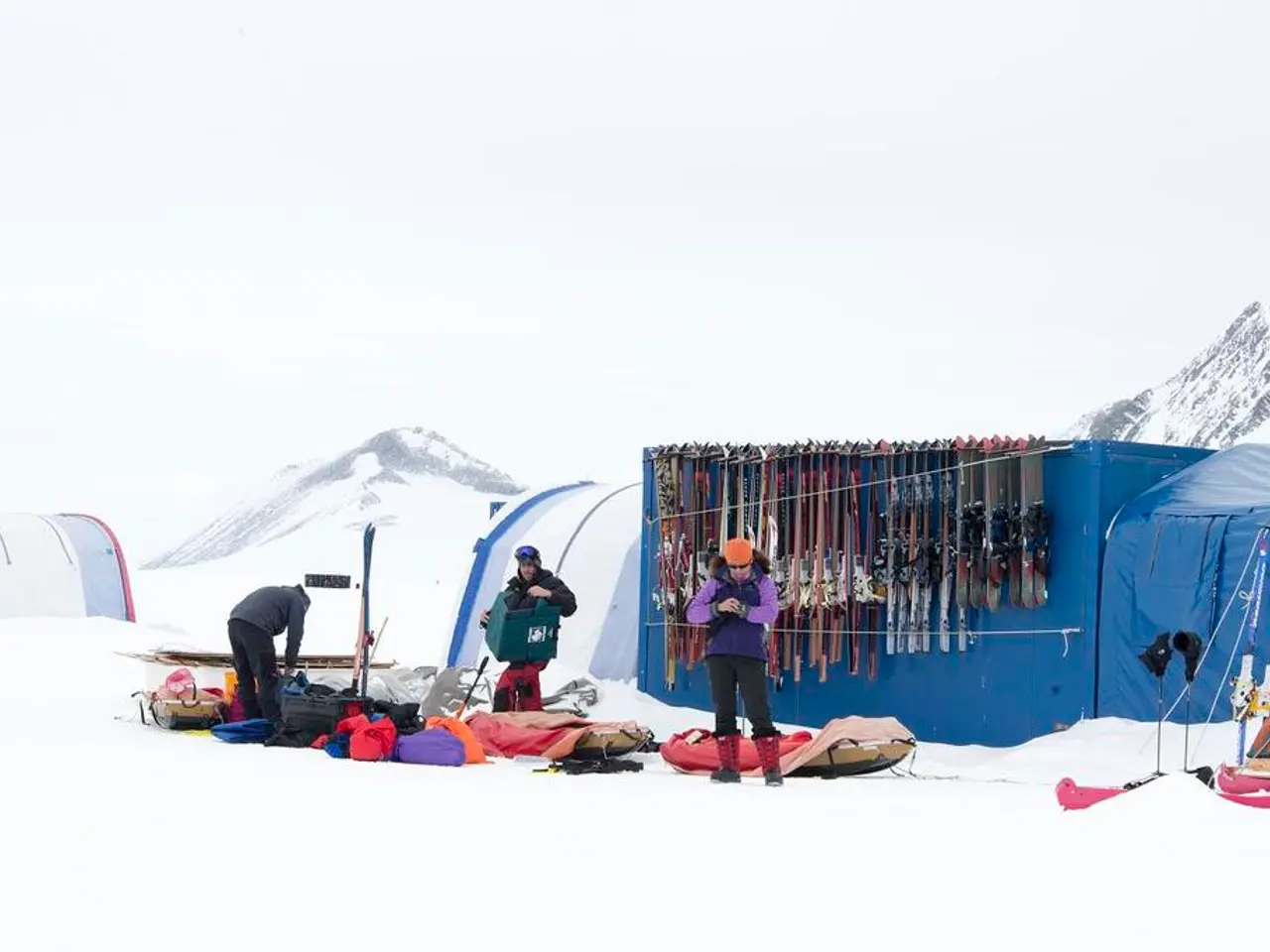Melted glaciers in the Alps result in a water scarcity issue
The recent June heatwave has brought about an unprecedented acceleration in the melting of snow and glaciers in the French Alps, causing significant water shortages at mountain shelters just as the summer hiking season begins.
The Selle refuge, nestled in the Ecrins mountain range, is a prime example. This shelter, with 60 beds, relies on water streaming down from the mountain. However, without water storage tanks, it depends on the natural meltwater flow. The current situation has already forced temporary closures in mid-August 2023, and the threat of another closure looms this year.
To cope with the water shortage, managers have installed long plastic pipes to divert water from nearby glaciers. However, these pipes traverse steep, unstable slopes increasingly vulnerable to severe storms, making this solution precarious.
Dagan, who has worked in the sector for 15 years, has witnessed a metamorphosis of the mountains and glaciers. Above 3,200 meters altitude, conditions are drier than anything previously experienced, which is concerning for the rest of the summer. Dagan refers to the mountains and glaciers as "our water towers" and sees herself and other mountain refuge workers as "sentinels" who have observed the changes.
Rainfall has become scarcer in the French Alps, and a cover of snow helps to protect the ice underneath by reflecting sunlight. However, this year, the snow is melting at an alarming rate, with some snowfields resembling conditions usually seen at the end of July or early August rather than June.
The melting snow and glaciers are causing water shortages at other mountain shelters as well. In neighbouring Switzerland, the slopes of the 1,400 glaciers are experiencing similar issues, with the accumulated snow and ice melting five to six weeks before the usual time.
Scientists predict that only remnants of today's glaciers are likely to exist by 2100 in the Alps. Xavier Cailhol, an environmental science PhD student and mountain guide, described the impact of the heatwave on the massif of Mont Blanc as "brutal". The changing shape of glaciers is disrupting the water supply for chalets, and there is a predicted need to pump water in the future rather than relying solely on gravity-fed natural meltwaters.
In summary, the June heatwave has severely impacted water availability at mountain shelters in the French Alps by accelerating snow and glacier melting months earlier than usual, threatening the sustainability of their water supply and forcing emergency adaptations.
- The unfolding climate change, evident in the accelerated melting of snow and glaciers, poses a threat not only to the French Alps but also to health-and-wellness, as it disrupts the water supply for mountain shelters essential for hikers.
- As the environmental science community continues to monitor the situation, it becomes increasingly clear that science-based solutions, such as adapting to a future without glaciers, will be essential for sustaining the health and wellness of both the environment and the people who rely on it.




